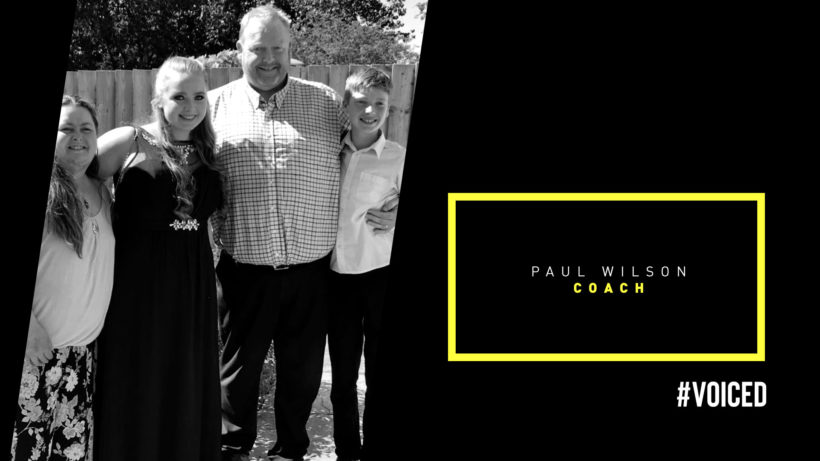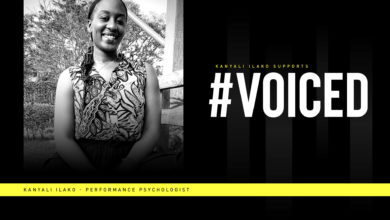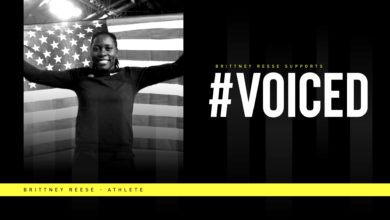Country: Great Britain
Profession: Coach
Paul is a former Discus Thrower having held Discus records for Yorkshire and the North of England in the U17 age group. He suffered a career-ending knee injury when he was 17. He now works as a Throws/Multi Events Coach based at City of York Athletic Club (since 2005), his list of athletes includes British Olympian Scott Lincoln. His coaching is in addition to his day job as a manager for a local electrical retailer.
He was named coach of the year at the 2016 England Athletics Yorkshire and Humber Regional Awards.
Being injured at 17 – effectively ending your career as a discus thrower – must have been quite devastating. Can you tell us about this time and how you managed to cope and get through?
The injury was very devastating at the time as I was also playing Rugby League to a good standard, and it ended both careers and I was told I wouldn’t play rugby or compete again. I struggled a lot at the time as I only heard from close friends and family – and nothing from my then coaches. But I just got on with it and did the best I could, getting back to work as quickly as I was as able to, working as a Lifeguard and Weights Instructor. I did try to return to throwing and did so for another 20 years, but I never had the confidence in my knee to achieve what I should have. This I believe helped me as a coach though, as it allowed me to understand the rehab and prehab process a lot better and what is required and what can be achieved. It also allowed me to understand the athlete better and get them to listen to their body, rather than just pushing through and understanding the difference between good and bad pain.
What was it about coaching that drew you to it?
Whilst continuing to throw I was 33 and self-coached and there was only one other throws coach at the track where we trained, and he coached hammer. So rather than turning young athletes away who would come to training and ask to throw I would say yes to them and let them join in. This soon ballooned into large numbers, so I qualified as a coach and the squad grew and grew to the point where I stopped training as I didn’t have time. I would coach Shot, Discus and Javelin and, in time when the hammer coach Bill retired, I learnt to coach hammer as well.
You don’t coach full time; can you explain the decision to have a ‘day job’ and coach voluntarily?
It isn’t really a decision; I have to work to pay the bills and coaching is voluntarily unless you are employed by the governing body. I would say 90% of the coaches in the UK are volunteers, this is very different to other sports like tennis, golf, swimming etc. where coaches are paid. I work full time and then leave work and travel to training 4 times a week to coach 2-3 hours each session. It becomes a way of life and if I don’t go to training the athletes can’t train. A lot of the athletes and parents are surprised that the coaches are all volunteers.
We read that your coaching style is more partnership than dictatorship – can you explain your coaching philosophy for us?
In my opinion as you coach a young athlete who is starting off in the sport and learning the technique, as a coach you need to dictate to them what to do and how to do it. This becomes repetitive as they learn and as you nurture them you are dictating their path of thought and development. However, as the athlete becomes older and more mature mentally, the athlete is then able to take more ownership of their technique and have a better understanding of the fundamental movements. I always ask the athlete how it feels and what they feel so I understand them more as well. By working in a partnership with the athlete they learn and can adapt when at a competition when the coach is unable to attend, this helps them be more independent rather than always needing to rely on a coaches guidance. It also gives the athlete the opportunity to have input in their technique and their programmes as a lot of athlete’s wont train and do the exercises if they don’t like or enjoy them.
Do you look for anything specific when deciding if you will coach an athlete?
As a volunteer coach I don’t really have a say in the matter which I don’t mind. You can never tell how an athlete will grow or develop as they become older and mature. It is always a challenge but a nice one to have and as a coach it helps to develop and test me. Most coaches would love to work with the perfect specimen, but this can take years to know and develop with the athlete. When you volunteer, you don’t get to pick and choose who you coach or get handed athletes that have already developed and are achieving.
During your years of coaching, what have you noticed separates out the good athletes from the great ones?
A lot of athletes have natural ability and as a coach if you can nurture this and develop this then they can be good. BUT the athlete has to want to work hard, be dedicated and listen. Too many talented athletes believe they can achieve without training hard or putting in the work and then fall by the wayside. For me the best athletes don’t have to be the most naturally gifted, but they must have something about them, they need to want it, they need to want to be the best they can be and to do this they need to be dedicated and be prepared along the way to make some sacrifices. Athletes like this will I believe ultimately achieve their dreams.
What do you do for fun, when you are not busy developing coaching programs?
Ha-ha, when and if I get time, I prefer nothing more than spending time with my wife and children. I love watching sport on TV and most of all love going to watch Leeds United FC as we are season ticket holders. I must also say though that at the training sessions we always have fun, we train hard, but I make sure it is fun and we can have a laugh along the way.


